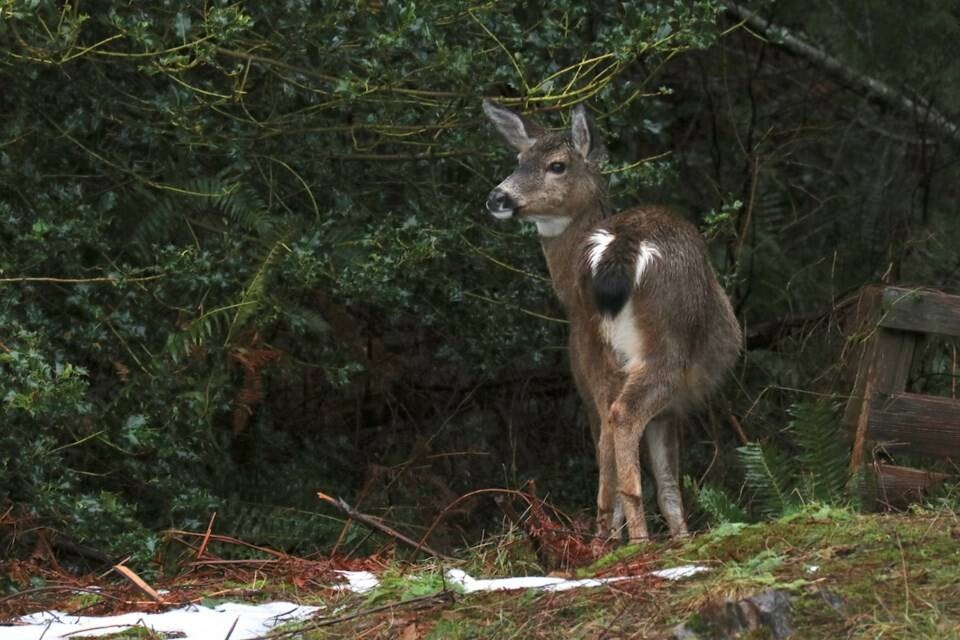If you’re involved in an accident with wildlife, or see a dead animal on the road, you shouldn’t just drive away, says the BC Conversation Officer Service.
In the second week of April, District of North Vancouver staff responded to reports of two injured deer in the Deep Cove area. Unfortunately, both succumbed to their injuries, said DNV spokesperson Ryan Schaap.
After receiving calls on its Report All Poachers and Polluters line, BCCOS also became involved. The callers said there were two dead deer that appeared to be injured in possible cougar attacks.
“Conservation officers looked into the deaths and determined that predators were not involved, and the deer likely were hit by vehicles,” said a BCCOS spokesperson by email.
Conservation officers thanked the public for the reports to the RAPP line, but said it should be the drivers making the reports.
Instead, the BCCOS directs drivers involved in an accident, or who find a dead animal on the road, to call local police and the highway maintenance contractor in the area.
“We need to remove the carcass from the traffic lanes before it causes an accident. The maintenance contractor can then add the data to the [wildlife accident reporting system],” reads information on the BCCOS website.
Miller Capilano Highway Services, which looks after Highway 1 across the North Shore, can be reached at 604-892-1010.
To avoid hitting wildlife on the road, the BCCOS recommends:
- Pay attention and drive at the posted speed limit.
- Drive at reduced speeds from dusk to dawn when animals are most active.
- Keep windshields clean as animals are not always easy to spot.
- Have good tires/brakes for safe stopping.
- Check the route on DriveBC.




